FMGE — Foreign Medical Graduate Examination
Why should I appear for Foreign Medical Graduates Examination (FMGE)..?
The Medical Screening Examination must be appeared by foreign medical grads after
returning to India in order to attain the license to practice medicine in India. The FMGE i.e. Foreign Medical Graduates Examination is conducted by the National Board of Examination (NBE) in India.
It was made mandatory for the students to pass the screening test after obtaining their medical degree from eastern European countries like China, Nepal, the Philippines, and Caribbean Countries. Other countries like Russia, Kazakhstan, Kyrgyzstan, Belarus, Armenia, Georgia, etc.
FMGE… when..?
FMGE 2019-20 is a national level examination conducted twice a year in the months of June and December. NBE is the authority responsible to conduct the examination for the medical graduates returning to their homeland from Abroad. FMGE MCI Screening Test must be given by the foreign medical degree holder students only.
What does the law say about the Foreign Medical Degree..?
In India, the number of medical seats is less and the number of medical aspirants is near about 15.97 lakhs. Due to this stiff competition between medical aspirants and medical seats in colleges of India, the students are opted to choose MBBS in Abroad.
Replacement of FMGE…
But soon this examination will be replaced by another examination known as NEXT i.e. National Exit Test. NEXT is also a licensing examination and is to be appeared by foreign medical graduates as well as Indian medical graduates.
Wondering to crack: Foreign Medical Graduates Examination (FMGE)
Foreign Medical Graduates undergo Screening Test. It is required to take the FMGE Screening Test if you are a medical graduate from any foreign country.
Take a sneak peek inside the Screening Test Results of 2015-18 and 2019. We have collected the country-wise stats of FMGE conducted by NBE i.e. National Board of Examination.
The difference between 2015-18 and 2019 can be clearly seen in the table. The highest passing percentage in 2015-18 has been secured by Bangladesh i.e. 27.11%.
In 2019 FMGE the Philippines outraged its results as the highest passing percentage i.e. 50.21%.
The top 5 countries indicated excellent results in Foreign Medical Graduates Examination in 2015-18 i.e. Bangladesh, Philippines, Georgia, Armenia, Ukraine.
However, countries like the Philippines, Bangladesh, Armenia, Georgia, Ukraine has shown diaristic changes in the 2019 FMGE Screening Test.
| Country | 2015 – 18 | 2019 |
| Armenia | 21.6 % | 34.5 % |
| Bangladesh | 27.11 % | 35.22 % |
| China | 11.8 % | 21.17 % |
| Georgia | 20.69 % | 29.94 % |
| Kazakhstan | 10.27 % | 25.2 % |
| Kyrgyzstan | 11.4 % | 19.8 % |
| Nepal | 12.6 % | 25.96 % |
| Philippines | 25.69 % | 50.21 % |
| Russia | 12.9 % | 25.53 % |
| Ukraine | 15.6 % | 29.89 % |
Facts — Foreign Medical Graduates Examination
| Paper | FMGE |
| Exam | Single Paper |
| No. of MCQs | 300 items |
| Language | English |
| Total Marks | 300 marks |
| Parts | Two |
| Marking System | No Negative Marking Single Correct Response |
| No. of Attempt | No restrictions |
| Qualifying Marks | 150 marks |
| Exam Parts | 2 Parts |
| Exam Centre | 42 Cities |
| Exam Fees | ₹ 6490 |
| Exam Duration | 150 minutes for each part |
FMGE/MCI Screening Test Results of Indian Students
The Country-wise list of MCI Screening Test of Indian Students from the year 2012-19 released by the testing body National Board of Examination is explained in this article. The total number of candidates who appeared and passed from the University or College in the test is discussed below with their passing percentage.
The entire data which is presented below is an extract of the 2012-2019 FMGE Screening Test Results.
Let’s get started with the discussion.
MBBS in Armenia
Course Duration: 5 + 1-years
Budget: 23 Lacs and above
FMGE results (2019): 34.5%
Medical one of the admirable professions in the world. Every year thousands of aspirants choose MBBS in Abroad, one of the options available for them is MBBS in Armenia.
The standard of living in the country is moderate. You will be getting the food mess in the colleges. Indian restaurants.
The climatic condition of the country is dry and continental. Weather varies accordingly the summers are long and tiring, winters are followed by snowfall.
Pros of studying MBBS in Armenia
- The literacy rate in Armenia is approximately 99.8% and the medium of instructions in the Universities is English.
- No entrance exam is conducted in the Armenian Universities.
Let’s see the Budget
- Studying medical in Armenia is suitable for those candidates who are ready to invest high.
- It houses a number of WHO and MCI recognized Universities. You have to pay a minimum of Rs. 23 lacs and above as tuition fees.
- Hostel and mess charges have to be paid in extra.
FMGE Screening Test Results
| Country | 2015 – 18 | 2019 |
| Armenia | 21.6 | 34.5 |
MBBS in Bangladesh
Course Duration: 5 years + 1-year Internship
Budget: 25 – 30 Lacs
FMGE results (2019): 35.22%
Somebody informed you that getting admission in Bangladesh is a bit difficult. You have to qualify the eligibility criteria of Bangladesh.
On the basis of Class 10 and 12 Marksheet, your GPA (Grade Point Average) is calculated. You have to meet the estimated GPA i.e. 7. Individually, in class 10 and 12 GPA must be 3.5.
Calculate your GPA to know your eligibility for MBBS in Bangladesh. Use the GPA Calculator to find your GPA.
Medical Colleges in Bangladesh allow only the previous year and a current year passed out students to take admission.
Pros of studying MBBS in Bangladesh
- As Bangladesh is one of the neighboring countries of India many Indian students are attracted to the country.
- The climate in Bangladesh is suitable for Indian students. In the country, the Tropical Monsoon Type of climate prevails as of in India.
- A similar Climate gives you similar disease patterns.
Budget
- Almost all the medical colleges in Bangladesh are affiliated with the Bangladesh Medical Council, University of Dhaka, and got accreditation of the Medical Council of India.
- Best medical colleges in Bangladesh have quite reasonable fees. Your investment will nearly come under Rs. 25 – 30 Lacs.
FMGE Screening Test Results
| Country | 2015 – 18 | 2019 |
| Bangladesh | 27.11 % | 35.22 % |
The Highest Passing Percentage in 2015-18 recorded by Bangladesh i.e. 27.11%. In 2019 FMGE scored 35.22% and achieved the second position as the Philippines occupied the highest percentage.
MBBS in China
Course Duration: 5 years + 1-year Internship
Budget: 20 Lacs and above
FMGE results (2019): 21.17%
Many students urge taking admission in China. But before thinking of MBBS in China, I would like to aware you of the terms of taking admission to China.
You have to learn a new language i.e. Chinese. Some Universities provide the curriculum in Bilingual language. You have to deal with patients in the Chinese language.
China might be your desired MBBS destination but it has various Cons too. The geographical condition affects the students the most. It has a cool temperate type of climate which is not bearable by most Indian students.
Pros of studying MBBS in China
- Top-notch colleges in China allows you to work across the globe after studying MBBS in China.
- Universities are listed in the Directory of World Medical School.
Budget for China
- Fees in Chinese Medical Universities are very affordable.
- Paid in yearly installments.
- Fees vary depending on the Universities in the country. Must have a budget of Rs. 20 Lacs and above.
Take a look over the Fees structure of Chinese Medical Colleges.
FMGE Screening Test Results
| Country | 2015 – 18 | 2019 |
| China | 11.8 % | 21.17 % |
MBBS in Georgia
Course Duration: 5+1-years
Budget: 15-30 Lacs and above
FMGE Results (2019): 29.94%
Indian students are directed towards Georgia for medical studies in a short span of time. The institutions are accredited by the Ministry of Education and Science of Georgia. Universities are well equipped and provide a world-class education system.
Pros of Studying MBBS in Georgia
- No IELTS or TOEFL examination conducted before admission.
- 5 top medical institutions out of 30 European medical institutions are in Georgia.
Budget for MBBS
- The education imparted in the country is within the best budget.
- MBBS studies in Georgia will cost you around Rs. 15 – 30 Lacs and above.
FMGE Screening Test Results
| Country | 2015 – 18 | 2019 |
| Georgia | 20.69 % | 29.94 % |
MBBS in Kazakhstan
Course Duration: 5 years + 1-year Internship Phase
Budget: 12 – 15 Lacs
FMGE Results (2019): 25.20%
Kazakhstan sets the benchmark for medical studies giving an excellent opportunity to Indian and International students.
The country is ranked as the safety land. Parents need not worry about the safety of their children. Select your desired University in Kazakhstan.
Pros of Studying MBBS in Kazakhstan
- Practical training provided to the students along with classroom sessions.
- Degree from Kazakhstan is valid in India or in other countries.
- Get Indian mess in the colleges of the country.
Budget for Kazakhstan
- The cost of studying MBBS in Kazakhstan is a minimum of Rs. 12 – 15 Lacs.
- Low-cost budget for Indian Medical Aspirants. A good option for students looking to study Medical with a world-class curriculum.
FMGE Screening Test Results
| Country | 2015 – 18 | 2019 |
| Kazakhstan | 10.27 % | 25.2 % |
MBBS in Kyrgyzstan
Course Duration: 5 years + 1-year Internship
Budget: 10 Lacs and above
FMGE results (2019): 19.80%
Students desiring to get admission in Low fees tends to choose their MBBS destination as Kyrgyzstan. The Government of Kyrgyzstan provides educational loan to the medical students.
Admission process in medical college is simple and straightforward. Aspirants coming from different countries such as Russia, Nepal, Nigeria, Pakistan, Kazakhstan, India.
Pros of Studying MBBS in Kyrgyzstan
- No entrance examination to get admission into the medical college.
- Colleges are well-equipped and the English curriculum is followed for the Indian students.
- The teacher-student ratio is optimal.
Read more about MBBS in Kyrgyzstan.
Budget for Kyrgyzstan
- The money expenditure in the colleges starts from 10 Lacs and goes high depending upon the Universities.
- The medium of instruction is English in colleges.
- Other expenses like Visa Charges, flight tickets, hostels, and the mess will cost you reasonable.
FMGE Screening Test Results
| Country | 2015 – 18 | 2019 |
| Kyrgyzstan | 11.04 % | 19.8 % |
MBBS in Nepal
Course Duration: 5 years + 1-year Internship
Budget: 55 – 60 Lacs and above
FMGE results (2019): 25.96%
Nepal has 20 private medical colleges, 2 government colleges, and 2 medical colleges operated autonomously. The Universities in the country are affiliated with Tribhuvan University and Kathmandu University.
MBBS in Nepal requires 60% in PCB i.e. Physics, Chemistry, and Biology. You must be NEET Qualified. You have to appear and crack the entrance exam to hold a medical seat in Nepal.
Pros of studying MBBS in Nepal
- The traveling expenditure decreases because it is near to India.
- World Class faculty with professional doctors and highly qualified teachers shaping the future doctors.
Budget for Nepal
- The budget for private medical colleges on an average is Rs. 55 Lacs – 60 Lacs.
- Excessive charge of fees attracts a smaller number of Indian students.
- Living expenditure as well as food charges are also higher compared to India.
FMGE Screening Test Results
| Country | 2015 – 18 | 2019 |
| Nepal | 12.6 % | 25.96 % |
MBBS in the Philippines
Course Duration: BS-MD (2+4 years) + 1-year Internship
Budget: 15 Lacs and above
FMGE result (2019): 50.2%
Qualifying class 12 and NEET you can get admission to the Philippines. The Universities of the Philippines provide BS-MD courses.
BS i.e. Pre-medical Program continues for 1.5 – 2 years depending upon the college. Before, stepping into the MD course i.e. 4 years you have to qualify for NMAT i.e. National Medical Admission Test.
Get to know about What is NMAT…?
Pros of studying MBBS in Philippines
- The plus point of studying in the Philippines is the climate. The geographical condition is the same as in India.
- You do not have to learn a new language. The entire study curriculum is taught in the English language.
- The students passed out from the Philippines are given preference for USMLE i.e. United States Medical Licensing Examination.
Flick over some more Benefits of studying MBBS in the Philippines.
Let’s talk about the budget
- Quality education at low fees. You have to invest approximately 15 lacs and above.
- You have to pay the fees in small and easy installments at the University.
Check the entire Fees Structure of MBBS in Philippines
FMGE Screening Test Results
| Country | 2015 – 18 | 2019 |
| Philippines | 25.69 % | 50.2 % |
Philippines got the highest passing percentage in FMGE 2019 i.e. 50.2%. The country has many best medical colleges with a world-class education curriculum.
MBBS in Russia
Course Duration: 5+1 year
Budget: 12 – 30 Lacs
FMGE Results (2019): 25.53%
In India, there are very few medical seats and the number of aspirants is in lakhs. Everyone can’t get admission in Government medical colleges and private medical colleges expenses are very high.
Winters in Russia are crisp and cool followed by hot and scorching summers. Ideal for
studying, student friendly environment.
Pros of Studying MBBS in Russia
- Not getting MBBS in India due to the heavy competition may take admission in Russia.
- Expenses are comparatively low as in India.
- Fully furnished Universities offering world-class studies in the English language.
Budget for Russia
- Money investment for MBBS in Russia is moderate. You must be prepared with a minimum of Rs. 12 Lacs – 30 Lacs.
- Your budget really depends on the University you choose because fees may vary.
FMGE Screening Test Results
| Country | 2015 – 18 | 2019 |
| Russia | 12.9 % | 25.53 % |
MBBS in Ukraine
Course Duration: 5 years + 1-year Internship
Budget: 24 Lacs and above
FMGE results (2019): 29.89%
In order to apply in Ukrainian Medical Schools, you don’t have to appear for IELTS or TOEFL examination. The admission process in Ukraine is easy and simple.
You are not required to go through any entrance examination. During the course study, you have to appear for KROK – 1 after the 3rd year of MBBS. And KROK – 2 after the 6th year of studies.
Take look on the KROK in Ukraine.
Pros of studying MBBS in Ukraine
- After studying MBBS from Ukraine you are eligible to appear for PLAB i.e. Professional Linguistic Assessment Board.
- All the medical colleges in Ukraine are UNESCO, FAIMER, MCI, and WHO approved.
- Medical Degree from Ukraine is accepted globally.
Let me, aware you about the study cost for MBBS in Ukraine.
- Standard of education at a cost-effective budget.
- No donation or Capitation fees are accepted in Ukraine.
- Overall, you have to invest 24 Lacs and above.
Check the entire Fees Structure of MBBS in Ukraine
FMGE Screening Test Results
| Country | 2015 – 18 | 2019 |
| Ukraine | 15.6 % | 29.89 % |
FMGE — Eligibility Criteria
- The Applicant must be a Citizen of India or an Overseas Citizen of India.
- The student must possess a primary medical qualification that must be recognized by the Indian Embassy to be acknowledged as medical practitioners in India.
- Candidates who have obtained Under-Graduate medical degree from the countries like Australia, Canada, New Zealand, United Kingdom, United States of America.
And the holder has also been awarded a Post-Graduate medical degree from the later
countries mentioned, are not required to seek permanent registration in India.
Exam Pattern of FMGE
The examination is the commencement for the medical graduates from foreign countries. The paper comprises 300 items or multiple-choice questions. FMGE is a single day, single paper exam.
It is a computer-based examination delivered as per the prescribed scheme by the testing body i.e. National Board of Examination (NBE).
FMGE is divided into two parts. The examination consists of 150 questions each.
a. Number of Attempts:
There are no restrictions on the number of attempts. Till now NBE exam guidelines allow an applicant to attempt FMGE an unlimited number of times.
If an applicant qualifies the exam once, the candidate is not eligible to appear again for FMGE. Moreover, if he/she will appear the exam, will be treated as void and will be canceled.
b. Marking Scheme:
- In FMGE there is no negative marking. A Single Correct response is valid for each question.
- The candidate is tested against 300 MCQs, he/she have to obtain 150 marks out of 300 marks.
- The time allotted for each part is 150 minutes. There will be a scheduled break between each part.
Syllabus of FMGE
ANATOMY
- General Anatomy: Basic tissues to body, Terminology & Nomenclature
- Elements of Anatomy: Osteology, Arthrology, Myology, Angiology, Neurology
- Regional Anatomy: Upper limb, Lower limb Thorax-including diaphragm Abdomen and Pelvis, Head, Neck Brain, and Spinal cord
- Embryology: Development of individual organs and systems, Postnatal growth & development
- Histology: General Histology Microanatomy of individual organs and systems
- Human Genetics: Principles of Human Genetics and Molecular biology
- Radiological Anatomy: Skiagrams, Special X-rays, Principles of imaging techniques.
- Surface Anatomy: In cadavers, in the living
- Sectional Anatomy: Thorax, Abdomen, Head, Neck, and Brain
PHYSIOLOGY
- General Physiology
- Body fluids – Blood
- Nerve and Muscle
- Gastrointestinal Tract
- Kidney
- Skin and Body temperature
- Endocrine Glands
- Reproduction
- Cardiovascular System
- Respiratory System
- Central Nervous Systems
- Special Senses
BIOCHEMISTRY
- Cell and Sub-cellular structures
- Hydrogen Ion concentration Acid, Bases, Buffers, Handerson-Haselbach equation
- Isotopes and their Application
- Carbohydrates
- Amino Acids, Peptides, and Proteins
- Lipids Nuclear Acids
- Enzymes
- Vitamins
- Biological Oxidation
- Digestion and Absorption from GI Tract
- Intermediary Metabolism
- Carbohydrate Metabolism
- Lipid Metabolism
- Protein and Amino Acid Metabolism
- Purine and Primidine Metabolism
- Minerals
- Biochemical Genetics and Protein Biosynthesis
- Tissue Biochemistry
- Liver Functions
- Nutrition and Energy Metabolism
PATHOLOGY
- Cell injury
- Inflammation and Repair
- Immunopathology
- Infectious diseases
- Circulatory disturbances
- Growth disturbances and Neoplasia
- Nutritional and other disorders
- Genetic disorder
- Haematology
- Cardiovascular Pathology
- Respiratory Pathology
- Pathology of Kidney and urinary Tract
- Hepato-Biliary Pathology
- Lymphoreticular System / Spleen
- Reproductive System (male & female)
- Diseases of the Breast
- Musculoskeletal System
- Endocrine pathology
- Neuropathology
- Dermato-Pathology
- Ocular Pathology
MICROBIOLOGY
- General Microbiology
- Immunology
- Bacteriology
- General Virology
- Systemic Virology
- Mycology
- Parasitology
- Clinical / Applied Microbiology
PHARMACOLOGY
- General Pharmacology
- Autonomic Nervous System
- Cardiovascular System
- Diuretics
- Drugs affecting blood and blood formation
- Autocoids and related drugs
- Respiratory System
- Gastrointestinal System
- Endocrine pharmacology
- Central Nervous System
- Psychopharmacology
- Drugs in Anaesthetic practice
- Chemotherapy
- Toxicology
- Clinical Pharmacology and Rational drug use
FORENSIC MEDICINE
- Definitions
- Courts of India
- Court procedures
- Medical Certifications & medico-legal reports including dying declaration
- Death
- Changes after death
- Inquest by police, magistrate and coroner
- Identification
- Examination of mutilated human remains
- Medico-legal autopsies
- Mechanical injuries and wounds
- Examination of an injury case
- Injuries due to physical agents & their medico-legal importance
- Asphyxial death
- Death due to malnutrition, neglect battered babies
- Dowry death
- Virginity, sexual offenses, sexual perversions
- Legitimacy
- Pregnancy and delivery
- Infanticide
- Biological fluids
- Seminal stains
- Forensic Psychiatry
- Medical Jurisprudence
- Toxicology
GENERAL SURGERY
- Hemorrhage and shock
- Fluid, electrolyte and acid balance, nutrition
- Skin tumors, burns, skin grafting
- Arterial diseases
- Venous diseases
- Lymphatic and Lymph nodes
- Wounds Specific and non-specific injections
- Tumors, Cysts, Ulcers and Sinuses and Fistulae
- Infections of Hand and Foot
- Diseases of muscle, tendons, bursae, and fascia
- Hernia
- Umbilical glaucoma, fistula, adenoid
- Abdominal Wall
- Face, Teeth, Gums, Mouth, Tongue, Salivary glands, Neck
- Thyroid Glands, Thyroglossal Tract and Endocrines
- Breast
- Sympathetic System
- Cranio-Cerebral injuries
- Brain, Nerves
- Genito-Urinary System
- Kidneys and Ureters
- Urinary Bladder
- Prostrate
- Urethra
- Penis, Testis, and Scrotum
- Vasectomy and Recanalisation
- Cardiothoracic System
- Oesophagus, Stomach, and Duodenum
- Spleen, Liver, Gall Bladder, and bile ducts
- Pancreas
- Peritoneum
- Intestines, intestinal obstruction
- Appendix
- Rectum and Anal Canal
ANESTHESIA
- Anatomy of upper airway
- Physiology of Respiration O2/CO2 transport. Methods of oxygen therapy.
- Pre-operative evaluation/pre-medication
- Anaesthetic agents, stages of Anaesthesia
- Principles and mechanism of administration of general anesthetics, balanced
- Anaesthesia IPPV,
- Endotracheal Intubations
- Muscle Relaxants
- Spinal/Epidural Anesthesia
- Local Anesthesia
- Cardiopulmonary resuscitation basic, use of simple ventilators
- Monitoring
- ICU, the role of the anesthesiologist in ICU
- Shock
- Blood Transfusion and Fluid Electoral Balance
- Sites of respiratory obstruction and management of the airway in an unconscious patient
- Poisoning
- Role of Anesthesiologists in acute and chronic relief.
ORTHOPEDICS
- Traumatology
- Injuries of:
- a. Bones and joints,
- b. Lower Extremity,
- c. Spine Vascular Injuries,
- Cold Orthopedics
- Regional Conditions
- Neuro-Muscular Disorder
- Bone and Joint Tuberculosis
- Physical Medicine and Rehabilitation
- RADIO- DIAGNOSIS
- Respiratory System
- Cardiovascular System
- Gastrointestinal System
- Obstetrics &Gynaecology
- Skeletal System
- Central Nervous System
- Excretory System
RADIOTHERAPY
- Principles of Radiotherapy
- Principles of Chemotherapy
- Prevention and Early diagnosis of Cancer
- Principles of Nuclear medicine
- Common radiation reactions and management
- Radiotherapy and chemotherapy are commonly seen as cancers
- Radio-isotopes in diagnosis and therapy
PAEDIATRICS
- Vital statistics
- Neonatology
- Growth & Development
- Nutrition
- Infections
- Genetics
- Pediatric Emergencies
- Central Nervous System
- Gastroenterology
- Nephrology
- Endocrinology
- Respiratory System
- MEDICINE Clinical Methods in the practice of Medicine
- Common symptoms of the disease
- Nutrition/Exposure to Physical & Chemical Agents
- Infections
- Hematology
- Respiratory System
- Cardio-Vascular System
- Gartro-Intestinal Tract
- Emergency Medicine
- Neurological System Nephrology & Urinary system connected to Tissue Disorders
- Endocrine System
- Geriatrics
TUBERCULOSIS AND RESPIRATORY DISEASES
Diagnosis and management of common ailments affecting the chest with special emphasis on management and prevention of Tuberculosis and the National Tuberculosis Control Programme.
PSYCHIATRY
- History aspects and diagnosis & treatment of mental illness
- Conduction of Mental Status Examination
- Behavioral Sciences
- Different psychoses Clinical features, diagnosis, and management of:
- Schizophrenia
- Mania and depression
- Anxiety disorders and hysteria
- Dementia
- Alcoholism
- Drug Abuse
- Psychiatric emergencies
- Clinical features, diagnosis, and management of psychiatric disorders of childhood and adolescence
- Personality disorder
DERMATOLOGY AND SEXUALLY TRANSMITTED DISEASES
- Dermatological therapy
- Lichen Planus
- Diseases caused by Nutritional and Environmental Factors
- Infective Disorders
- Melanocytes, pigment metabolism and other disorders of Pigmentation
- Allergic Disorders
- Dermatitis and Eczema
- Vesiculobullous Diseases
- Alopecia and Hirsutism
- Structure and functions of Sebaceous glands and Disease
- Leprosy
- Psorasis
- STD
OPHTHALMOLOGY
- Basic sciences – Anatomy, Physiology, Pharmacology, Pathology, Elementary Optics,
- Diseases of the Eye
- Conjunctiva
- Cornea
- Sclera
- Uveal Tract
- Lens
- Vitreous
- Glaucoma
- Retina
- Optic Nerve
- Intra-Occular Tumors
- Squint
- Orbit
- Lacrimal System
- Lids
- Refractive Errors
- Injuries
- Ophthalmic Surgery
- Community Ophthalmology
- Miscellaneous
OTORHINOLARYNGOLOGY
- Diseases of:
- a. Ear
- b. Nose and Para Nasal sinuses,
- c. Nasopharynx
- d. Trachea
- Oesophagus
OBSTETRICS AND GYNECOLOGY
- Anatomy of the Female Reproductive Tract
- Physiology of conception
- Development of fetus and placenta
- Diagnosis of pregnancy
- Maternal changes in pregnancy
- Antenatal care
- Abnormal obstetrics
- Normal labor
- Normal terrarium
- Breast Feeding
- Care of newborn
- Medical termination of pregnancy
- Family planning
- Operative obstetrics
- Post-Cesarean pregnancy
- Pharmaco therapeutics in obstetrics
- Safe motherhood
- Maternal morbidity and morality
- Medico-legal aspects
- RCH
- Current topics
- Vaginal discharge
- Menstrual disorder
- Fertility, infertility
- Endometriosis and allied states
- Genital:
- Injuries and fistulas,
- Infections
- Prolapse
- Tumours
- Carcinomia
- Radiotherapy in gynecology
- Chemotherapy in gynecology
- Endoscopy
- Diseases of breast
- Operative gynecology
COMMUNITY MEDICINE
- Evaluation of Public Health and Concepts of Health Environment and Health
- Health Education
- Nutrition and Dietetics
- Occupational Health
- Medical Sociology and Community Mental Health
- Fundamentals of Biostatistics
- Basic Epidemiology
- Epidemiology of Specific Diseases
- Communicable and Non-Communicable Diseases
- Demography
- Reproductive and Child Health
- School Health
- Urban Health
- Health System in India
- Health Planning and Management including Disaster Management
- International Health
Frequently Asked Questions (FAQs)
There are no restrictions on the number of attempts for passing the FMGE Screening Test.
The qualifying percentage of FMGE is 50%. You have to score 150 marks out of 300 marks.
A report says 16% of the foreign medical graduates are clearing FMGE Screening Test in India. Since its for only medical graduates, it seems difficult to pass. But being a doctor, you must qualify the exam as it redefines your capability to serve the nation.
Yes, it is mandatory for all the foreign medical graduates to attempt FMGE Screening Test in India. They want to practice as doctor, have to appear for Screening Test.
National Board of Examination the conducting body of FMGE conducts the examination over Online mode. Computer-based examination delivered using a computer network as per the prescribed scheme.
FMGE follows the single paper exam. It contains 300 items in MCQs (Multiple Choice Questions) pattern.
The student needs to be a Citizen of India or an Overseas Citizen of India. Must possess a primary medical qualification recognized by the Indian Embassy.
The examination is conducted twice a year. The examination months are June and December.
The Screening test will be conducted in 42 cities of India. The testing bodies have created these exam centers for the convenience of the applicants.
The examination is conducted in Only in English language. No other language is considered by the testing body of examination.
The exam is segregated into 2 parts i.e. Part – I and Part – II. Each part consists of 150 questions. There is a scheduled break between each part.
Author: Rima Kochar
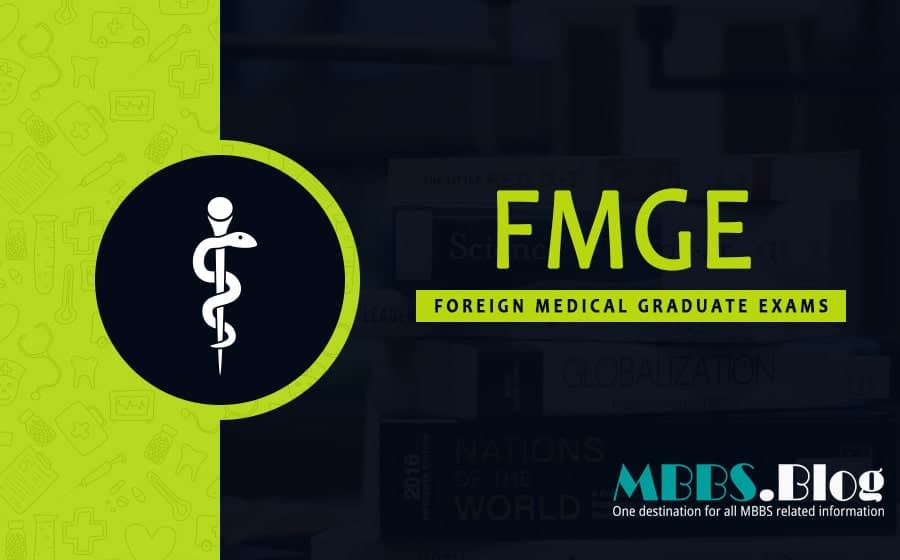
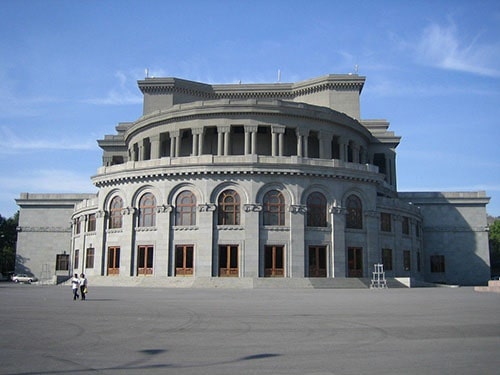
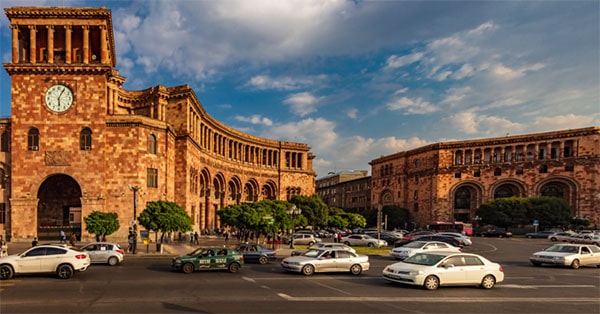
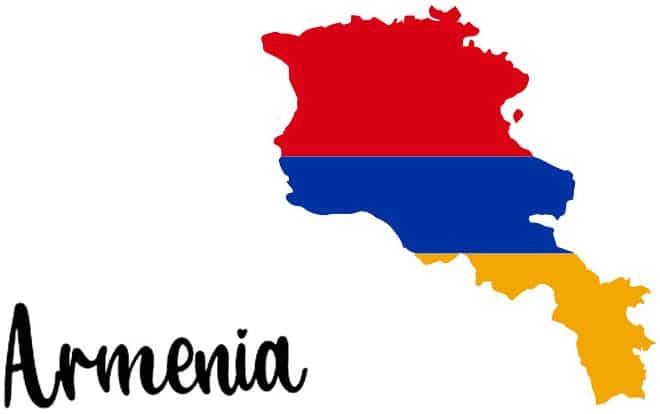
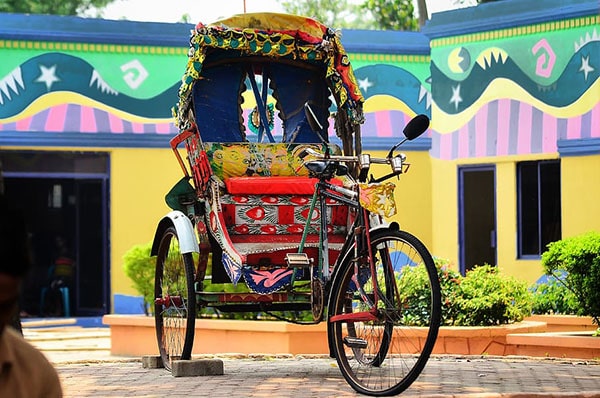
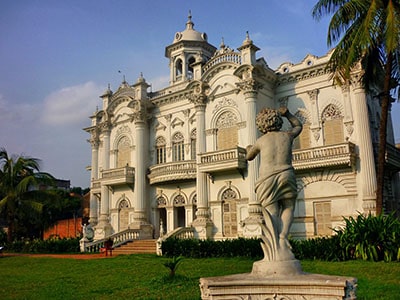
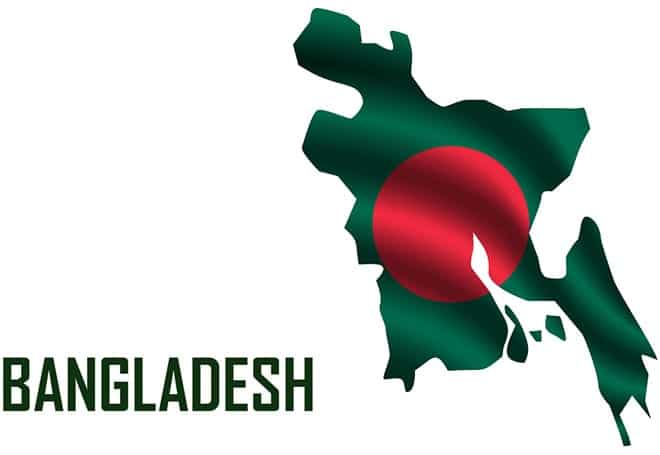




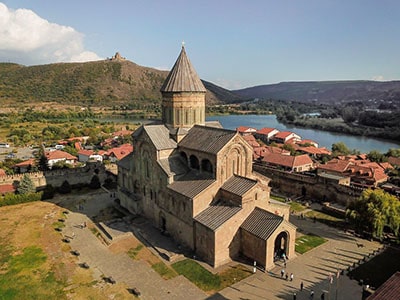
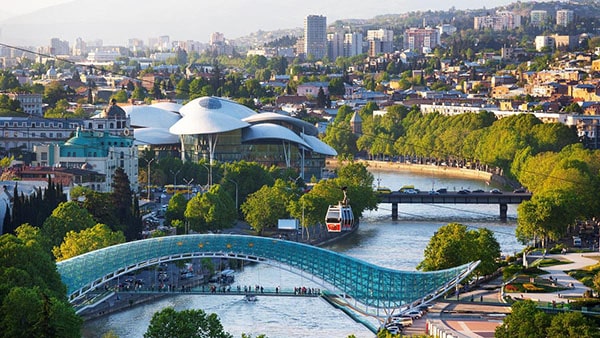
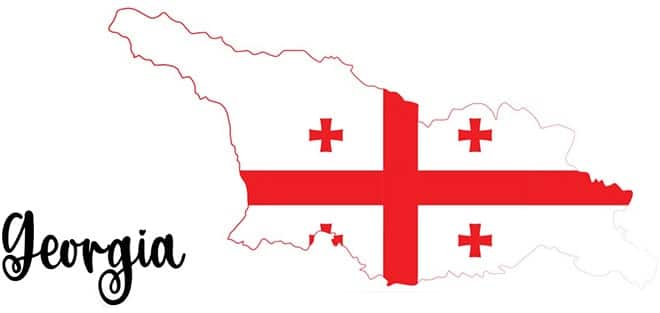


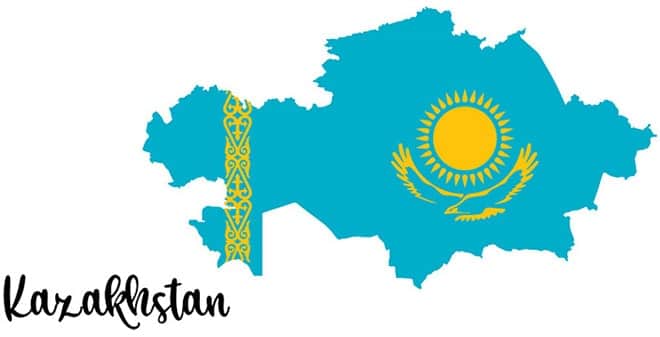
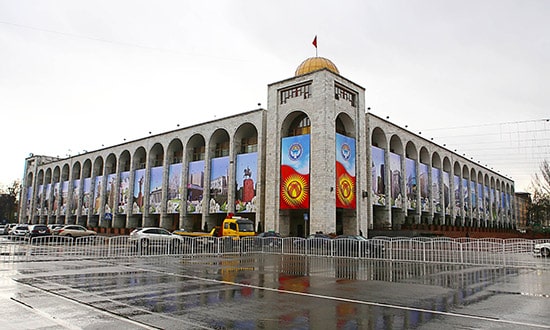
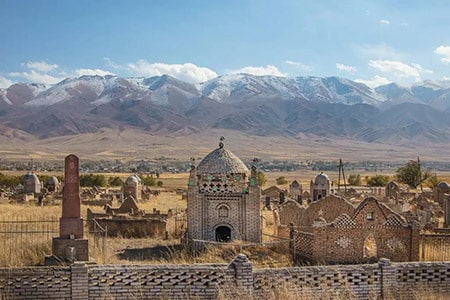
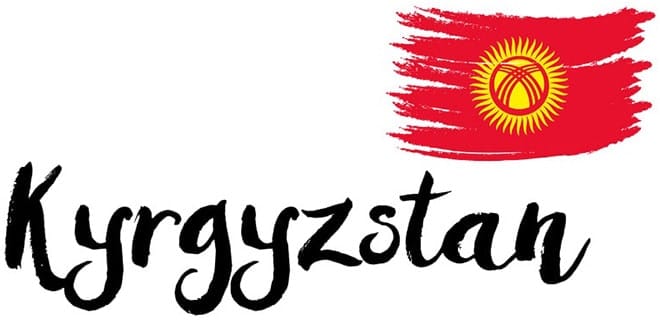
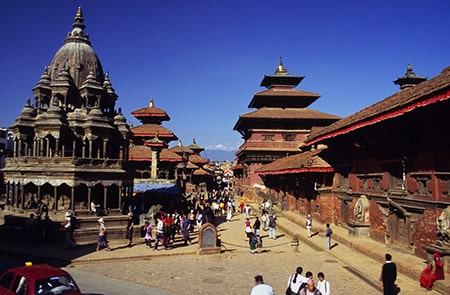
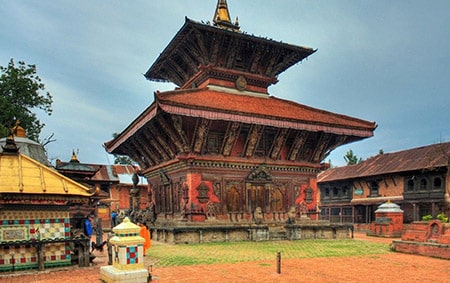
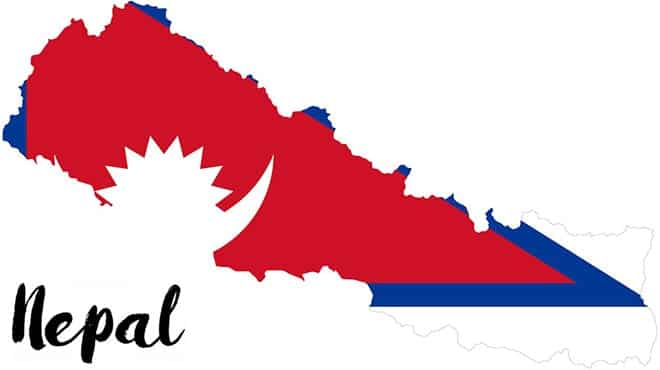

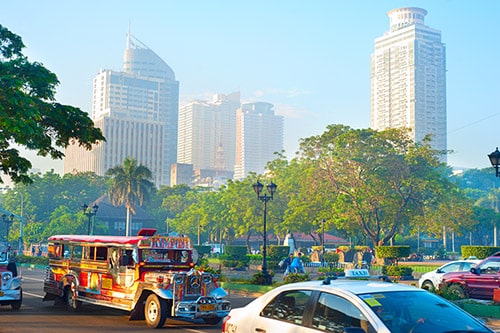

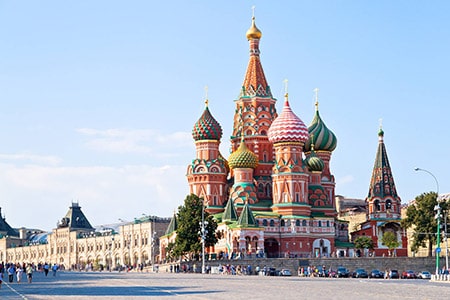




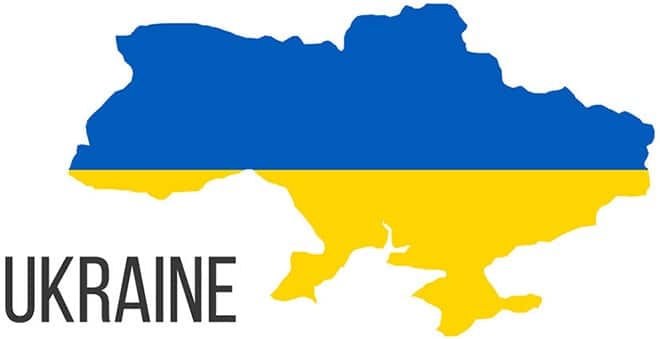
Possible could you please share the link or source where you will get data of pass percentage of FMGE.
I read % of passing FMGE is low as shown higher side.
Official Link for passing percentage 2015-2018: https://natboard.edu.in/pdoof/pbnotice2019/FMGE_performance_report.pdf?h88233erhx90wsd0q2wk2s2ks2weuigfu3g77844jh89de
Official Link for passing percentage 2019: https://natboard.edu.in/NewWeb/stage-site/notices/Performance_Report_-_FMGE_2019.pdf
MBBS Abroad:
Confused about where to study abroad? Meet the expert counsellors at the Education Abroad. Get free personal counselling, complete admission guidance, and additional support like filling up the application form, getting the student visa, loan, forex exchange and more.